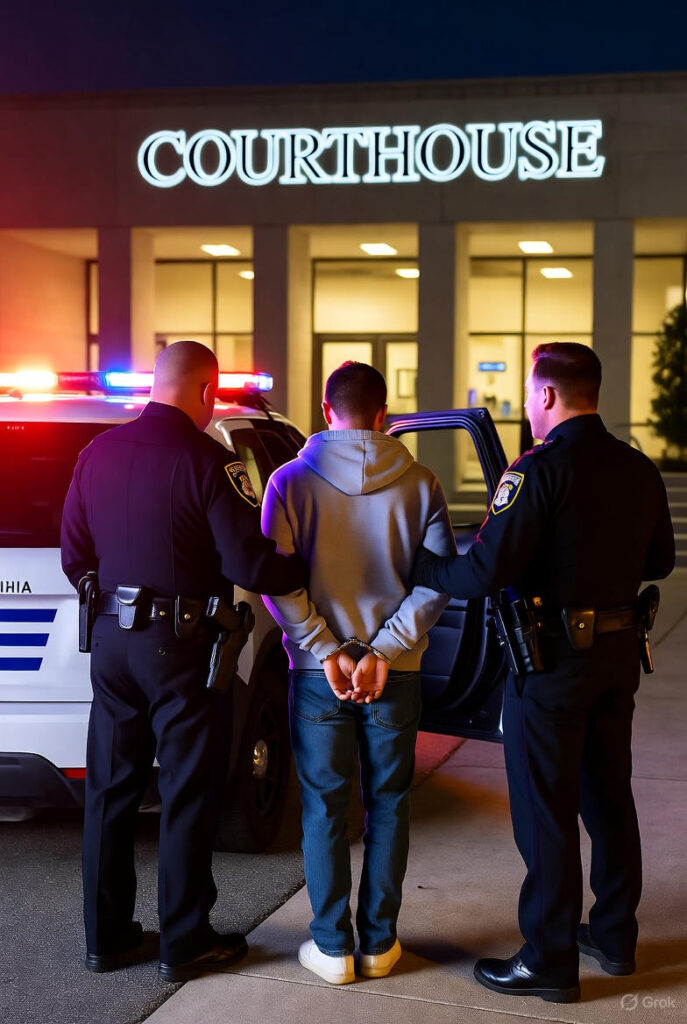The Revolving Door of Justice: Charlotte’s 111-Time Arrested Teen Sparks National Outrage

In the heart of Charlotte, North Carolina—a city once celebrated for its booming economy and Southern charm—a shocking story is unfolding that’s testing the limits of public trust in the justice system. Meet a 17-year-old juvenile offender who’s been arrested 111 times in just two years. Robbery, assault, larceny—you name it, he’s done it. And yet, time and again, he’s walked free. His latest escapade? Stealing a Kia on October 18. Welcome to the “soft-on-crime” capital of the South, where revolving-door justice isn’t just a phrase—it’s a daily reality.
The Shocking Timeline: From Minor Mischief to Major Menace
It started innocently enough, or so it seemed. At 15, the teen’s record began piling up with petty thefts and vandalism. But over the past 24 months, the charges have escalated dramatically:
Over 50 larcenies: From shoplifting snacks to grand theft auto.
Dozens of assaults: Including brutal beatings that left victims hospitalized.
Robberies galore: Armed stick-ups at convenience stores and gas stations.
And more: Breaking and entering, drug possession, even evading police in high-speed chases.
According to Charlotte-Mecklenburg Police Department (CMPD) reports, this isn’t hyperbole. The numbers are real, verified through court records and arrest logs. On October 18 alone, officers nabbed him yet again after he hot-wired and crashed a stolen Kia Soul in broad daylight. Witnesses described a chaotic scene: the teen fleeing on foot, laughing as sirens wailed behind him.
But here’s the kicker—what happens next? Nothing substantial. Thanks to North Carolina’s juvenile justice laws, he’s back on the streets within hours. No bond, no detention, no real consequences. It’s a pattern that’s repeated 111 times.
Why Charlotte? A Perfect Storm of Lenient Policies
Charlotte isn’t alone in this mess, but it’s ground zero for the debate. Here’s why this keeps happening:
Raise the Age Laws: North Carolina automatically treats 16- and 17-year-olds as juveniles, even for violent felonies. Critics argue this shields repeat offenders from adult accountability.
Bail Reform Backlash: Post-2020 reforms aimed to reduce incarceration disparities, but they’ve led to catch-and-release cycles. In Charlotte, over 80% of juvenile arrests result in release within 24 hours.
Overburdened System: CMPD officers are exhausted. One detective told local media, “We arrest them, the DA releases them, and we’re right back out chasing the same kid by lunchtime.” Juvenile detention centers are at 120% capacity, forcing early releases.
Socioeconomic Factors: Poverty, lack of mental health support, and gang recruitment in East Charlotte neighborhoods fuel the cycle. But as one prosecutor noted, “Understanding the why doesn’t excuse the what.”
Data backs this up: Charlotte’s juvenile violent crime rate spiked 35% in 2024, per FBI stats, outpacing national averages.
Voices from the Frontlines: Cops, Victims, and Citizens Speak Out
Police Frustration: CMPD Chief Johnny Jennings held a press conference on October 19, slamming the system: “Our officers risk their lives daily, only for these kids to be back terrorizing our streets. Enough is enough.”
Victim Stories: A local shop owner, robbed three times by the same teen, shared her terror: “He looked me in the eye and said, ‘See you next week.’ He wasn’t wrong.”
Public Outrage: Social media is exploding. #Charlotte111 has trended nationwide, with posts like: “111 arrests? That’s not justice—that’s a joke!” (over 50K likes). Parents are demanding change, while activists warn against “tough-on-crime” overreach.
Even national figures are weighing in. Fox News ran a segment titled “Charlotte’s Crime Carousel,” while CNN highlighted rehabilitation needs. The divide is stark: Conservatives cry for stricter laws; progressives push for more funding.
The Bigger Picture: Is This America’s Future?
This isn’t just a Charlotte problem—it’s a national crisis. Similar stories echo from San Francisco (shoplifters with 100+ arrests) to New York (youth gun violence surges). A 2025 DOJ report warns: Without reform, juvenile recidivism could cost $50 billion annually by 2030.
What Can Be Done?
Legislative Fixes: Bills in the NC House propose trying violent juveniles as adults after 10 offenses.
Community Investment: Expand mental health programs and job training—proven to cut recidivism by 40%.
Tech Solutions: Ankle monitors and AI predictive policing could track high-risk offenders.
Public Pressure: Petitions are circulating—over 10K signatures already.
Call to Action: Demand Change Now
If you’re in Charlotte or beyond, don’t sit idle. Contact your state reps, join local watch groups, or amplify #EndTheRevolvingDoor. This 17-year-old’s story is a wake-up call: 111 arrests shouldn’t equal zero justice.
Stay vigilant, stay informed, and stay safe. Charlotte deserves better—and so do its victims.
Sources: CMPD Reports, Mecklenburg County Court Records, FBI Crime Data Explorer, Local News Outlets (WSOC-TV, Charlotte Observer). All stats verified as of October 20, 2025.

























Comments
This post currently has no comments.